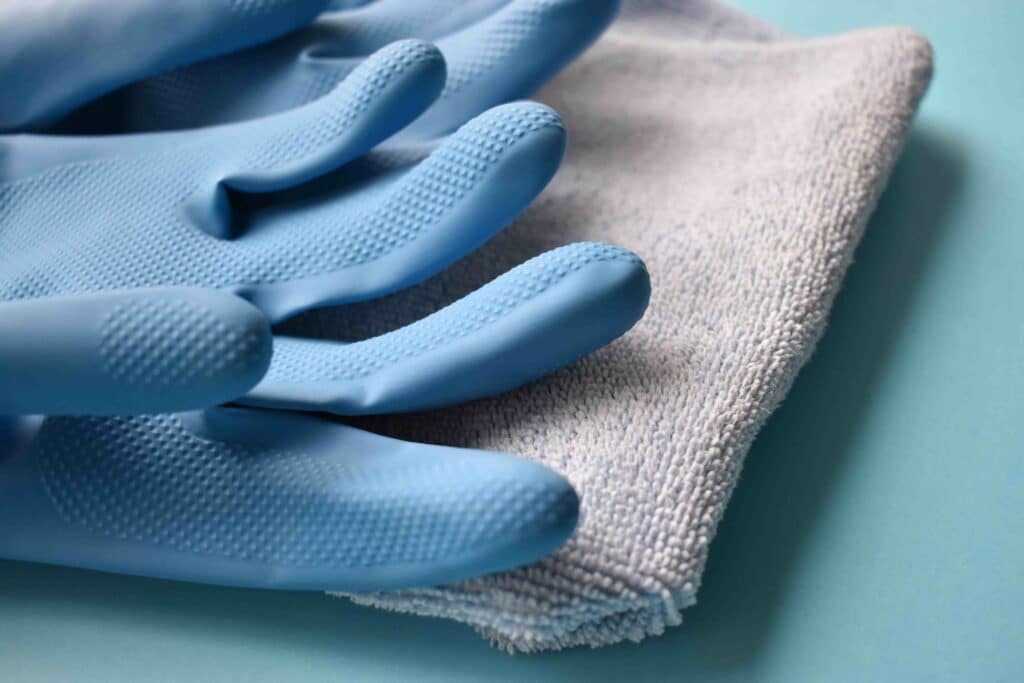
While cleaning concepts have taken their own lumps during the COVID-19 pandemic, the crisis has also shown the resilience of this “less sexy” side of franchising and has cleaning companies learning a lot.
Prior to this crisis, companies like Anago Cleaning Systems, the 1,700-unit franchise with locations across the U.S. and Canada, were seen as commodities. And a recent survey by a commercial building association showed that cost was the chief way building owners and managers compared such companies.
“They surveyed thousands of commercial cleaning customers and asked what are the big goals. The No. 1 goal was how to do I minimize the cost of cleaning,” said Adam Povlitz, president of Anago. “So, it was conflicting goals between customers and companies. Now, we’re seeing the exact opposite trend. Customers are now truly concerned and not just wanting the cheap cleaning but also asking, ‘What is going to keep my employees safe and healthy?’”
But with many of their client locations closed or in the shaky process of reopening, the company has seen a bump in the road. In April, Povlitz said systemwide sales were down about 15 percent as many clients paused service. But he’s hopeful that when the economy opens back up, the company will fare better than in the great recession just given the nature of the crisis. Even in the Great Recession, he said company revenue only sank 2 percent overall. And the new obsession with disinfection and cleanliness may help the company bounce back faster to year-over-year growth that it saw prior to the pandemic.
Essential businesses and those reopening are a good indicator for the cleaning segment. These businesses are looking to add disinfection with some regularity and those with more visitors want more regular disinfection. Paul Masters, a master franchisee for Anago in Georgia with about 40 individual operators across a huge swath of the state and the Atlanta area, said things are down, but the pandemic has changed the paradigm.
“I think we’ll see a paradigm shift of us reaching out to buildings to more of a pull method, not really from us advertising but from customers going in and asking the manger, ‘What is your plan to make sure I’m safe?” said Masters. “I think that shift from push to pull, where customers demand that level of cleanliness, is good for everybody.”
Masters said revenue is down about 15 percent since the stay-at-home orders went into place. While clients such as schools are going to pause operations until the next term in September, he said most clients will open up soon.
“I feel pretty good about, at least for us, that most of our clients will reopen in some fashion. And we’ve picked up some new clients to provide recurring services during the last six weeks,” said Masters.
He said the phone lines at his call center have been busy since Georgia’s governor announced the plan to reopen the state. Between the push to pull and the intense focus on cleanliness, he said he and his franchisees have had to learn a lot to answer new client questions. Before the pandemic, the questions were generally about price.
“Suddenly, they’re way more concerned with what happens at night when they leave,” said Masters. “Overnight, we went from cleaning toilets and emptying trash cans into infection experts. They have asked us so many questions that we’ve been forced, all of us, have been forced to learn about things that we didn’t know existed six weeks ago.”
He said he and his staff always knew about disinfection dwell time and EPA-approved disinfectants, but there have been a whole slew of new certifications, new questions about virus types and exactly how electrostatic guns work.
Andrew Navarro, a Philadelphia-based Anago master franchisee with 29 franchisees, said that’s been a way for the company to position itself as an infection expert. It stocked up on EPA- and CDC-approved cleaning supplies and personal protection equipment, which it’s providing to clients as well as franchisees. It’s also a way to raise awareness of more premium services and communicate that importance well before the state is set to open up.
“It’s just more awareness that we developed these different disinfecting programs, elevated frequency or in general adding a disinfection cleaning plan,” said Navarro. “A lot of our contracts disinfect phones once a month, now we’re offering disinfecting of high-touch areas more frequently. Electrostatic cleaners, that’s another part of the elevated protection plan. With corporate, we’re putting together a whole process for clients for people who call and ask if we do electrostatic cleaning.”
He said about 10 percent of clients have added services with more disinfection or a deeper level of disinfection than before. And the electrostatic cleaning, seen all over the news as a way to do deep disinfection and reach those tricky areas, has become a popular discussion point. Prior to COVID-19, it was a premium, niche service, but it’s growing at an explosive rate.
While the damage of the pandemic is still being measured, the crisis shows yet again the resilience of the not-so-sexy part of franchising. And the new normal between here and the definitive end to COVID-19 may prove a windfall for the segment.